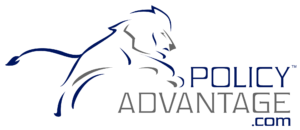Achieving Convergence: The Intersection of Technology Integration and Cybersecurity in Health Insurance
/in Uncategorized /by PolicyAdvantageIntroduction
In the dynamic landscape of the insurance industry, technological advancements play a crucial role in shaping the operational framework of health insurance agencies. This article delves into how the convergence of cutting-edge technologies like IoT (Internet of Things), AI (Artificial Intelligence), and Cloud Computing, along with a strong focus on cybersecurity, is reshaping the health insurance landscape. This convergence is not merely a strategic decision; it is a critical navigational component within the complex world of health insurance in the 21st century.
The Role of IoT in Health Insurance
IoT, with its interconnected devices and real-time data collection capabilities, has revolutionized the way health insurance agencies operate. The implementation of IoT enables the gathering of valuable insights into policyholders’ health, fostering a proactive approach to risk management. Wearable devices, smart home sensors, and health monitoring gadgets contribute to a more accurate assessment of individuals’ health statuses. This facilitates the development of personalized insurance plans and supports early intervention and preventive measures, ultimately reducing the frequency and severity of claims.
AI’s Impact on Health Insurance
Artificial Intelligence serves as the catalyst propelling efficiency and effectiveness in health insurance operations. AI algorithms analyze extensive datasets to identify patterns, predict trends, and automate routine tasks. In claims processing, AI expedites the assessment of claims by swiftly analyzing medical records and relevant documentation. Additionally, AI-powered chatbots enhance customer interactions, providing instant responses to inquiries and guiding users through the intricacies of insurance policies. The outcome is a more responsive and customer-centric health insurance experience.
Cloud Computing in Health Insurance
The adoption of cloud computing is instrumental in ensuring seamless accessibility, scalability, and secure data storage within health insurance operations. Cloud-based platforms enable secure sharing of information across the organization, fostering collaboration and enhancing operational efficiency. The ability to store and retrieve vast amounts of data in real-time facilitates quicker decision-making processes, ensuring that policyholders receive the most accurate and up-to-date information. Moreover, cloud computing allows health insurance agencies to adapt swiftly to industry changes, keeping them agile in a constantly evolving landscape.
The Critical Role of Cybersecurity
While the integration of technology offers numerous benefits, the significance of robust cybersecurity cannot be overstated. Health insurance agencies prioritize cybersecurity measures to safeguard sensitive data against potential threats. Advanced encryption, multi-factor authentication, and regular security audits are integral components of a comprehensive cybersecurity strategy. By instilling confidence in policyholders that their personal and health information is secure, health insurance agencies not only meet regulatory requirements but also build trust in an era where data breaches are a prevalent concern.
Why Convergence Matters
The convergence of IoT, AI, and Cloud Computing, combined with a steadfast focus on cybersecurity, positions health insurance agencies as pioneers in the industry. This seamless integration not only enhances operational efficiency but also improves customer satisfaction and outcomes. With a proactive approach to risk management, the development of personalized policies, and a commitment to data security, health insurance agencies ensure they remain at the forefront of the evolving landscape. In a world where technology continues to shape the future, health insurance agencies stand as a testament to the transformative power of convergence in the health insurance sector.
